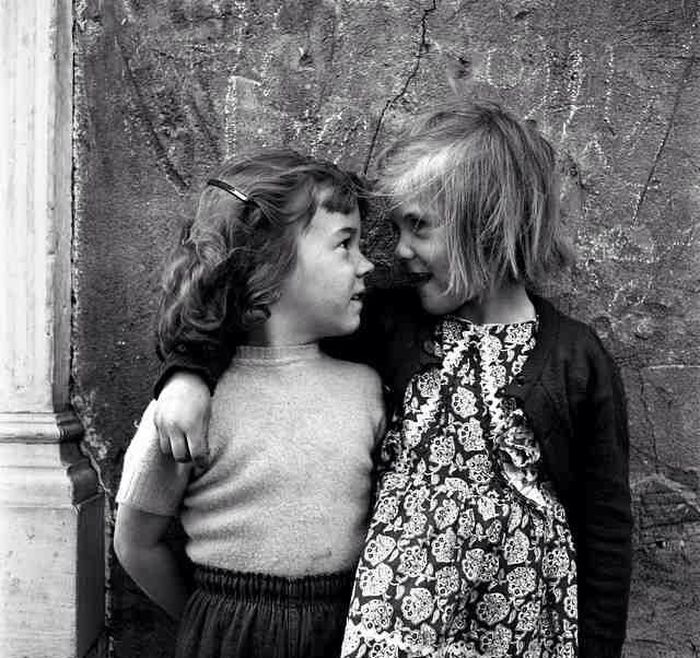“Who can know the heart of youth but youth itself?”: Preserving stolen moments in Patti Smith’s Just Kids
Whilst we remain at home, Editor Caterina Bragoli argues that Smith’s vitality and thirst for life offers us a new way to experience exhilaration in these unusual times.
Patti Smith, a renowned emblem of New York punk rock (with a whimsical bohemian twist), is an undeniably extraordinary woman. Branded by none other than Mick Jagger as ‘full of words and crap’, the ‘punk poet laureate’ of the 60s and 70s artfully coalesced poetry and music, exhibited by famed tracks ‘Because the Night’ (co-written with Bruce Springsteen), 'Broken Flag' and ‘Frederick’.
Her artistic pursuits are certainly not limited to the confines of music: Smith has produced memoirs, novels and poetry that all exhibit the same lack of inhibition. It is her memoir Just Kids, a detailed preservation of both a New York brimming with life and culture, and her relationship with artist Robert Mapplethorpe, that allowed me to experience a vision of youth’s most powerful and formative moments, in a way I never had before.
“She lets us experience her serpentine journey through the city alongside her.”
Smith muses, as a 20 year old leaving the safety of familiar New Jersey for the mythic New York, ‘Where does it all lead? What will become of us? These were our young questions’. A young artist, who carried with her the words of poets like Blake and Genet, cannot be confined to an intransigent life, as she came to realise: ‘I had no proof that I had the stuff to be an artist’, she remarks, ‘though I hungered to be one’. It is this hunger, or unfailing determination - set in motion by the verse of those that came before her - that perhaps defines what our lives will ‘become’. Are we not products of our inspiration, and is this not our driving force?
The voices of her beloved writers echoed in her mind as she took her first steps through New York city in July 1967. ‘In Washington Square’, she remembers, ‘one could still feel the characters of Henry James and the presence of the author himself’. New York wasn’t just a product of its modern architecture or financial opportunities to Smith, but was defined by ‘the sounds of bongos and acoustic guitars, protest singers, political arguments, activists leafleting, older chess players challenged by the young’. Smith has a way, throughout the memoir, of viewing places and people through buoyant, ardent eyes, thus shaping New York into an ‘open atmosphere’ of ‘simple freedom’. Optimism seeps through the pages, and certainly sparked the sentimentalist in me.
At the beginning of her bold venture into New York, Smith finds her answer to the initial question ‘what will happen to us?’. The answer is given by Robert Mapplethorpe, a struggling artist from Long Island who similarly rebelled against his Catholic upbringing. Mapplethorpe declares ‘There will always be us’, thus cementing an artistic collaboration and music-fuelled relationship (immortalised in the song ‘Paths that Cross’ from her 1988 album ‘Dream of Life’, written to comfort him, perhaps before his death). In fact, Smith met a then 21 year old Mapplethorpe on her first day in the city, and together they birthed their own creative landscape. Smith was not only inspired by Mapplethorpe, but entranced, often recounting his ‘manifesto as an artist’: ‘I stand naked when I draw. God holds my hand and we sing together’. Art is catapulted to a quasi-divine plane here, and the image of Mapplethorpe and God harmonising together foreshadows the spiritualism within Smith’s later poetry (as seen in works like ‘seventh heaven’). ‘I don’t think, I feel’ is another mantra he followed, thus adding another dimension to Smith’s newfound vision of freedom. Perhaps this is why Smith’s words are so unapologetic and unrestrained: their soulmate status allowed her to draw from the way he abandoned himself to his emotions.
Smith’s memoir is so affecting as it doesn’t shy away from preserving the confusion that accompanies youth. While Smith relishes Coney Island’s ‘gritty innocence’, she lets us experience her serpentine journey through the city alongside her. We see Smith ‘scattered and stymied, surrounded by unfinished songs and abandoned poems’. It often feels like fragments of our own creative work form a labyrinth that is hard to escape, and Patti certainly ‘hit a wall’ at various parts in her artistic growth. Just Kids often takes an introspective stance, and forces us to look at the ways we hinder our own creative development. Smith laments that ‘everything distracted me, but most of all myself’, echoing every young creative, attempting to navigate the web of their own thoughts.
Just Kids replicates Smith's ‘interior world, part boxcar and part fairyland’ by fusing the claustrophobia and agitation of a once-restricted youth with the unorthodox, idiosyncratic world of 1960s New York. It is a work that even Mick Jagger couldn’t complain about (he actually probably could), which is fitting as Mapplethorpe’s self-proclaimed theme song was ‘Sympathy for the Devil’.
 Interviews / You don’t need to peak at Cambridge, says Robin Harding31 December 2025
Interviews / You don’t need to peak at Cambridge, says Robin Harding31 December 2025 News / Downing investigates ‘mysterious’ underground burial vault 29 December 2025
News / Downing investigates ‘mysterious’ underground burial vault 29 December 2025 News / Unions protest handling of redundancies at Epidemiology Unit30 December 2025
News / Unions protest handling of redundancies at Epidemiology Unit30 December 2025 Lifestyle / Ask Auntie Alice29 December 2025
Lifestyle / Ask Auntie Alice29 December 2025 Features / ‘Treated like we’re incompetent’: ents officers on college micromanagement30 December 2025
Features / ‘Treated like we’re incompetent’: ents officers on college micromanagement30 December 2025









